LAND ACKNOWLEDGEMENT
While this conference takes place online, we acknowledge we are connected via a vast array of servers and computer devices. Much of this infrastructure, in the United States, sits on stolen land acquired under the white settler expansion. As an organization, we recognize this history and uplift the sovereignty of Indigenous people, data, and territory. We encourage you to text (907) 312-5085 with your zip code, city, or state for Native Land acknowledgment or visit https://native-land.ca/ to learn whose land you are on.
Presenter LAND ACKNOWLEDGEMENT
Robin Aronson & Kelly Ferris Lester - It is important that I acknowledge and honor the land and labor of those who came before us, which allows us to learn as a Southern Miss community. I respectfully acknowledge the Mississippi Band of the Choctaw Nation who once occupied the land, now considered Mississippi. I aspire to honor and respect the Indigenous peoples who European colonizers forcibly removed from this territory, yet the Choctaw Nation remain connected to this land and continue to thrive nearby. I also own my part in the Choctaw Nation’s continued displacement by incorporating Indigenous knowledge in my work and working to establish meaningful connections with Indigenous peoples and communities. (adapted public statement from Dr. Cori Bazemore-James, 2019) Also, I want to respectfully acknowledge the enslaved peoples, primarily of African descent, who provided exploited labor to build and maintain many higher education institutions. I am indebted to their labor and to the labor of many who continue to work in the shadows for our collective benefit. I implore us as higher education scholars and practitioners to continue to remember and honor those whose land we occupy and whose labor we benefit from throughout the semester. (shared with permission from Dr. Jason Wallace, Assistant Professor, USM.)
Drew Arnold - According to Pepperdine University, a search for Los Angeles County using Native Land's Territory Acknowledgement tool shows that Los Angeles County sits on Chumash, Tongva, and Kizh land.
Michelle Bellaver - Barry University in Miami Shores, Florida resides on the traditional Homelands and territories of the Seminole,Taino, Tequesta, and other historical groups and individuals of many other Native groups.
Michael Cobb - I am presenting this paper from my home in New Hampton, New Hampshire, which is located on traditional homelands of the Abenaki people, past and present. We acknowledge and honor with gratitude the land, and the people who have stewarded it for generations.
Lisa Fischel - Lisa - Kiikaapoi (Kickapoo), Jumanos, Nʉmʉnʉʉ (Comanche)
The TTUHSC acknowledges that our university stands, like almost all property in the United States, on lands obtained, generally in unconscionable ways, from indigenous peoples. Land acknowledgements are one way that we can recognize and pay homage to the Indigenous communities. It is a way to provide awareness of Indigenous presence and land rights. Land acknowledgements may occur at the start of lectures, presentations, and ceremonies.
Tim Good - We wish to acknowledge and honor the Indigenous communities native to this region, and recognize that DePauw University in Greencastle, Indiana, is built on Indigenous homelands and resources. We recognize the Miami, Wea, Piankashaw, Potawatomi, Kickapoo, Shawnee, and Delaware (Lenape) people as past, present, and future caretakers of this land.
Deborah Kinghorn - I am presenting from the ancestral lands of the Ais and the Seminoles. I acknowledge their spiritual and physical connection to the land and honor the hardships they face, past and present, at the loss of unceded homelands.
Nancy Krebs - Maryland is a state of the eastern US, on the Atlantic Ocean. There are many famous Native American tribes who played a part in the history of the state and whose tribal territories and homelands are located in the present day state of Maryland. The names of the Maryland tribes included the Lenape, Nanticoke, Piscataway, Conoy, Powhatan, Accohannock, Shawnee, Susquehannock, Tutelo and Saponi tribes.
I would like to acknowledge and honor these original caretakers of the land upon which I now reside. Some of these original residents still live here today, for which I am very grateful!
Marth Munro - I acknowledge that I have benefitted from the sad,destructive legacy of Apartheid in South Africa. I reside on the land previously owned by the Southern Ndebele people, currently known as Pretoria, in the greater district of Tshwane.
Laura Resinger - Chicago is located on the traditional, ancestral and contemporary homelands of the people of the Council of Three Fires: the Ojibwe, Odawa, and Potawatomi Nations; the Illinois Confederacy: the Peoria and Kaskaskia Nations; as well as the Miami, Ho-Chunk, Inoka, Menominee, Sac, and Fox Nations. This land was forcibly purchased at the Treaty of Chicago in 1821, after decades of violent encroachment. Today, Chicago is home to one of the largest urban Indigenous communities in the United States, and they are the rightful and traditional stewards of this land.
Crystal Robbins - Crystal feels it is important to name the original caretakers of the lands she now calls home. The Chumash, Kizh or Tongva peoples lived in this part of Southern California for some say 10,000 years. To honor the indigenous way of thinking "before all things, gratitude", and in recognition of many wrongs, she gives thanks and support to those who came before: www.firstnations.org.
Dr. Dana Smith - Kiikaapoi (Kickapoo), Očhéthi Šakówiŋ, Sauk and Meskwaki, and Osage land, Kirksville, Missouri
Rachael Swartz - We acknowledge Potawatomi peoples lived where UW-Parkside is located before settlers of European descent claimed ownership of it and displaced those for whom this land was home. As we pursue our goals to dismantle systemic racism and attend to growing diversity, we acknowledge this injustice in our history and commit ourselves to just, equitable, and respectful relationships within our university.
